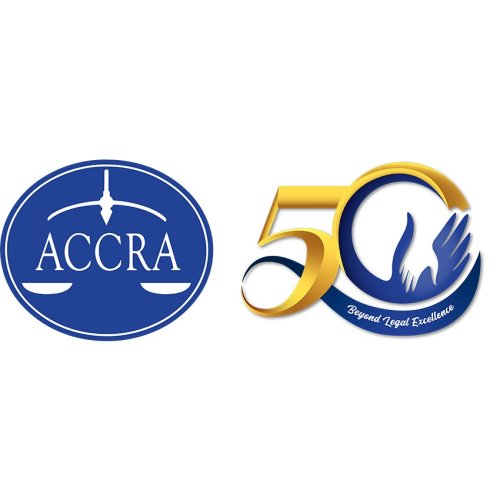Best Citizenship Lawyers in Cebu City
Share your needs with us, get contacted by law firms.
Free. Takes 2 min.
List of the best lawyers in Cebu City, Philippines
Philippines Citizenship Legal Questions answered by Lawyers
Browse our 1 legal question about Citizenship in Philippines and read the lawyer answers, or ask your own questions for free.
- What passport should my father have?
- My father was born in the PH in 1953 to chinese parents. He never got a PH passport but is able to vote and has a Ph national ID, a senior citizen's card. He used to have a Taiwan passport when he went there to work but has since been... Read more →
-
Lawyer answer by NARAG LAW OFFICE
He is a Chinese citizen. He can petition for naturalization though.
Read full answer
About Citizenship Law in Cebu City, Philippines
Citizenship law in Cebu City, Philippines, is regulated by the Philippine Constitution and the Republic Act No. 9225, also known as the Citizenship Retention and Reacquisition Act of 2003. These laws govern the acquisition and loss of citizenship for individuals residing in Cebu City.
Why You May Need a Lawyer
There are several situations where consulting a lawyer specializing in citizenship law in Cebu City can be beneficial:
- Applying for dual citizenship
- Renouncing or relinquishing citizenship
- Dealing with complex paperwork and legal documents
- Resolving legal disputes related to citizenship
- Understanding your rights and obligations as a citizen
Local Laws Overview
When it comes to citizenship in Cebu City, Philippines, the following key aspects of local laws are particularly relevant:
- Philippines Constitution: Provides the framework for citizenship regulations and outlines the rights and privileges of citizens.
- Republic Act No. 9225: Determines the retention and reacquisition of Philippine citizenship for natural-born Filipinos who lost their citizenship due to naturalization in another country.
Frequently Asked Questions
1. Can I have dual citizenship in Cebu City?
Yes, dual citizenship is allowed in Cebu City, Philippines. The Republic Act No. 9225 permits natural-born Filipinos who lost their citizenship to reacquire dual citizenship.
2. What are the requirements for acquiring dual citizenship in Cebu City?
The requirements for acquiring dual citizenship in Cebu City include completing an application, providing necessary documents such as birth certificates, marriage certificates, and naturalization documents, and paying the required fees.
3. How can I renounce or relinquish my Philippine citizenship?
To renounce or relinquish Philippine citizenship, you must file a formal application with the nearest Philippine embassy or consulate and comply with the necessary requirements and processes defined by Philippine laws.
4. Can I transfer my citizenship to my child who was born in another country?
Yes, you can pass your Philippine citizenship to your child who was born in another country. The child may acquire Philippine citizenship through the principle of jus sanguinis, which means "right of blood."
5. How long does it take to process citizenship applications in Cebu City?
The processing time for citizenship applications in Cebu City varies depending on the complexity of the case and the efficiency of the government agency handling the application. It is advisable to consult with a lawyer to understand the estimated timeline for your specific situation.
Additional Resources
If you need legal advice or further information about citizenship in Cebu City, Philippines, you may find the following resources helpful:
- Department of Justice of the Philippines: https://www.doj.gov.ph/
- Commission on Filipinos Overseas: https://www.cfo.gov.ph/
Next Steps
If you require legal assistance with citizenship matters in Cebu City, it is recommended to:
- Research and identify reputable lawyers specializing in citizenship law in Cebu City.
- Consult with the selected lawyer to discuss your specific case and get professional advice.
- Provide all necessary documents and information required by the lawyer for the legal process.
- Familiarize yourself with the applicable laws and regulations related to citizenship in Cebu City to better understand your rights and obligations.
- Cooperate with your lawyer throughout the process, attending meetings and providing any additional information or documents as requested.
Lawzana helps you find the best lawyers and law firms in Cebu City through a curated and pre-screened list of qualified legal professionals. Our platform offers rankings and detailed profiles of attorneys and law firms, allowing you to compare based on practice areas, including Citizenship, experience, and client feedback.
Each profile includes a description of the firm's areas of practice, client reviews, team members and partners, year of establishment, spoken languages, office locations, contact information, social media presence, and any published articles or resources. Most firms on our platform speak English and are experienced in both local and international legal matters.
Get a quote from top-rated law firms in Cebu City, Philippines — quickly, securely, and without unnecessary hassle.
Disclaimer:
The information provided on this page is for general informational purposes only and does not constitute legal advice. While we strive to ensure the accuracy and relevance of the content, legal information may change over time, and interpretations of the law can vary. You should always consult with a qualified legal professional for advice specific to your situation.
We disclaim all liability for actions taken or not taken based on the content of this page. If you believe any information is incorrect or outdated, please contact us, and we will review and update it where appropriate.















